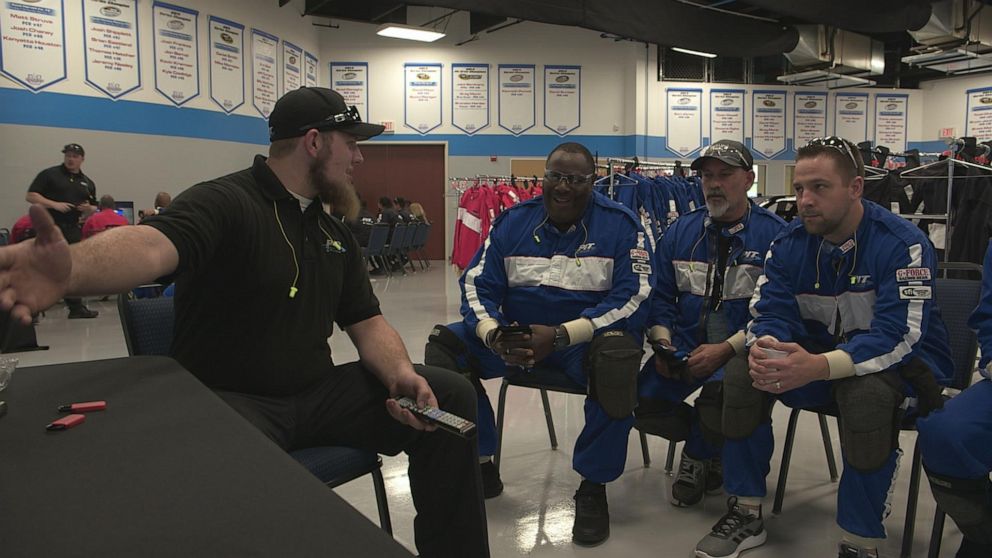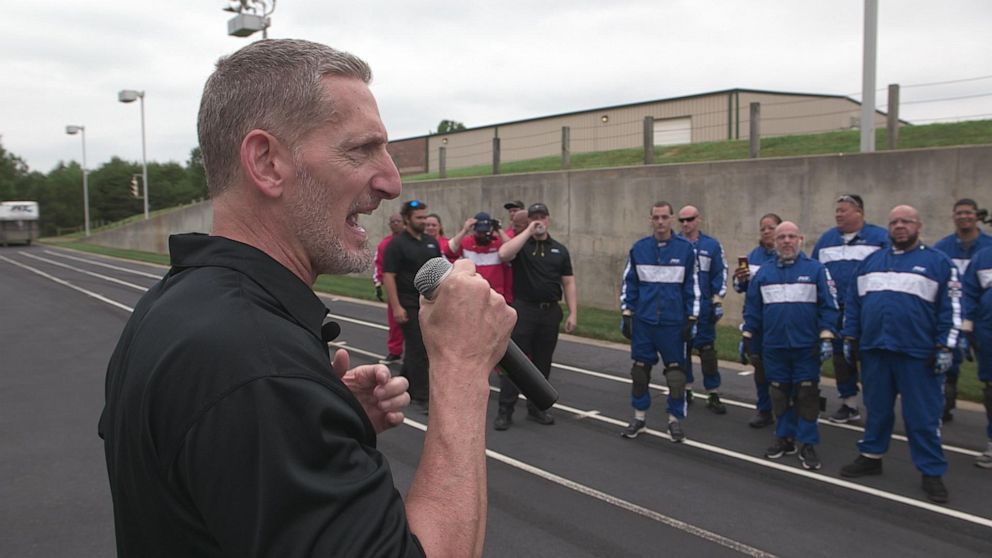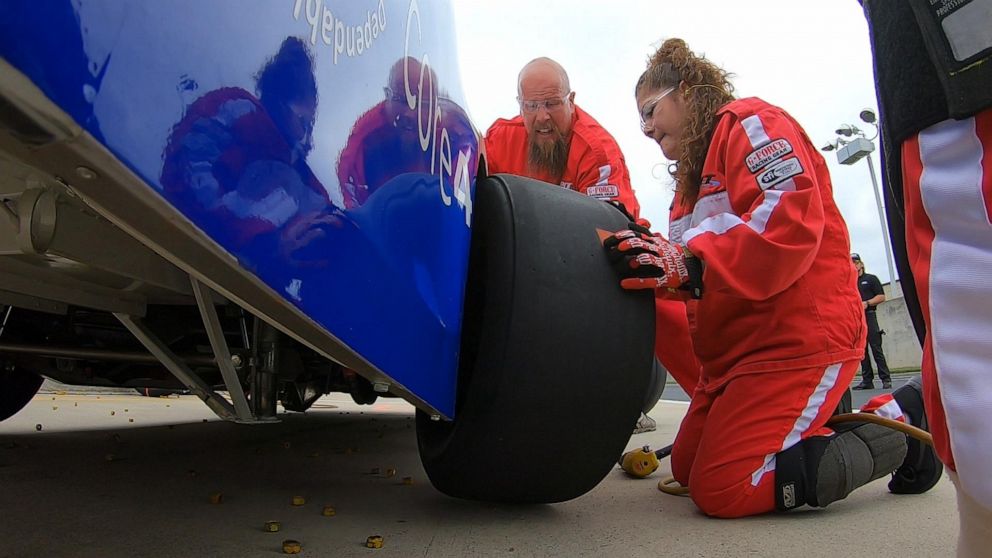United Airlines turns to NASCAR pit crews for quicker turnover
The training could shave up to seven minutes off the turn time for a jetliner.
Getting planes back in the air quickly between flights means money for an airline, which is what has United Airlines looking to the breakneck racing pits of NASCAR for tips.
NASCAR pit crews usually have just over 10 seconds to change tires, refuel and get their vehicles back on the racetrack. United saw these crews as a resource that could hone their team's efficiency in de-icing, moving baggage and completing all the other time-consuming tasks needed to get a plane ready for flight.
So they sent their ramp service agent team leaders, or "ramp leads," to pit crew training in Mooresville, North Carolina.

"Who wouldn't like this?" asked Cody Turner of Denver. "I'm a ramp lead out there, and I'm just really excited to take these skills that I've learned here back home."
Turner and the other ramp leads suited up May 22 to race the clock in six timed tire changes on United-branded race cars. While not exactly their typical workday overseeing luggage handling and aircraft servicing, they found similarities in pit crew workflow and priorities.
"This is very analogous work to what we do," said Joni Teragawachi, director of training design for United. "They're all about safety, efficiency, and speed in the box where the car is. Same thing for us."
When United first sent employees to pit crew training in 2007, they found the lessons in communication, safety and work-space organization shaved five to seven valuable minutes off ramp employees' turn time.
"If you shorten turn time and you get the aircraft in the air flying more, that's dollars in United's pocket," Teragawachi said. "I think last time we did this when we had about a seven minute turn-time shave-off they were saying it was equivalent to four or five additional aircraft in the air, which is huge."
The racetrack experience is offered by Performance Instruction and Training (PIT), which specializes in preparing prospective pit crew members for NASCAR. PIT began helping corporations in 2001 after Coca-Cola approached them for help improving their assembly line process, according to Director of Corporate Programming Ben Cook.

The training group has since offered its unique brand of team-building to companies from industries as varied as food production, medicine and nuclear energy.
"We've done almost every Fortune 500 company in America at one point or another," Cook said. "We hope that it makes sense that the smallest amount of efficiency in your tool organization, the smallest amount of efficiency in how you ergonomically structure your work areas can really help you save time, and I think corporations get it."
United intends to send every one of their roughly 2,000 ramp leads through the training, and is currently sending 30 per week to PIT's North Carolina facility.
Airport operations supervisor Kim Papineau was eager to return to Kansas City International to pass on what she had learned.

"I love how they set us up with a couple of unexpected surprises, like when our equipment wasn't in the right position -- that's what happens to us all the time," Papineau said. "I'm excited to get home and talk about it."
Smooth operation and teamwork were key takeaways for Papineau.
"They said, 'slow is fast,' and that makes sense to me," she said. "You just have to be set up and organized and prepared and then you do what you know how to do. And you're always looking out for each other."




